ReflectSpace Gallery
Downtown Central Library, Glendale
May 9 – July 28, 2018
Downtown Central Library, Glendale
May 9 – July 28, 2018
Artists
Masumi Hayashi
Masumi Hayashi
Mona Higuchi
Avo John Kambourian
Paul Kitagaki
Kevin Miyazaki
Archives
Archives
Ansel Adams
Clem Albers
Dorothea Lange
Curated by Ara & Anahid Oshagan
With support from the
California State Library’s
Civil Liberties Public Education Program
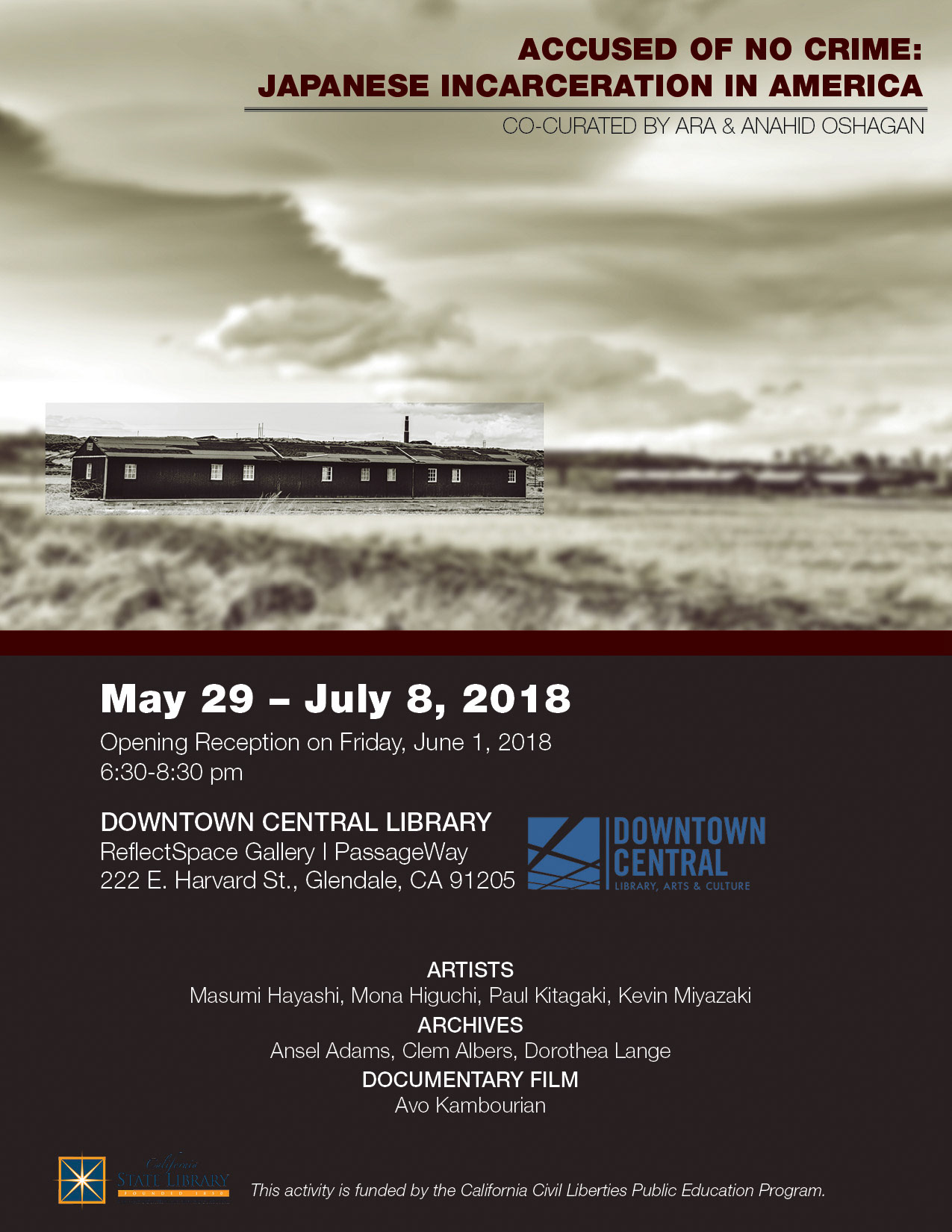
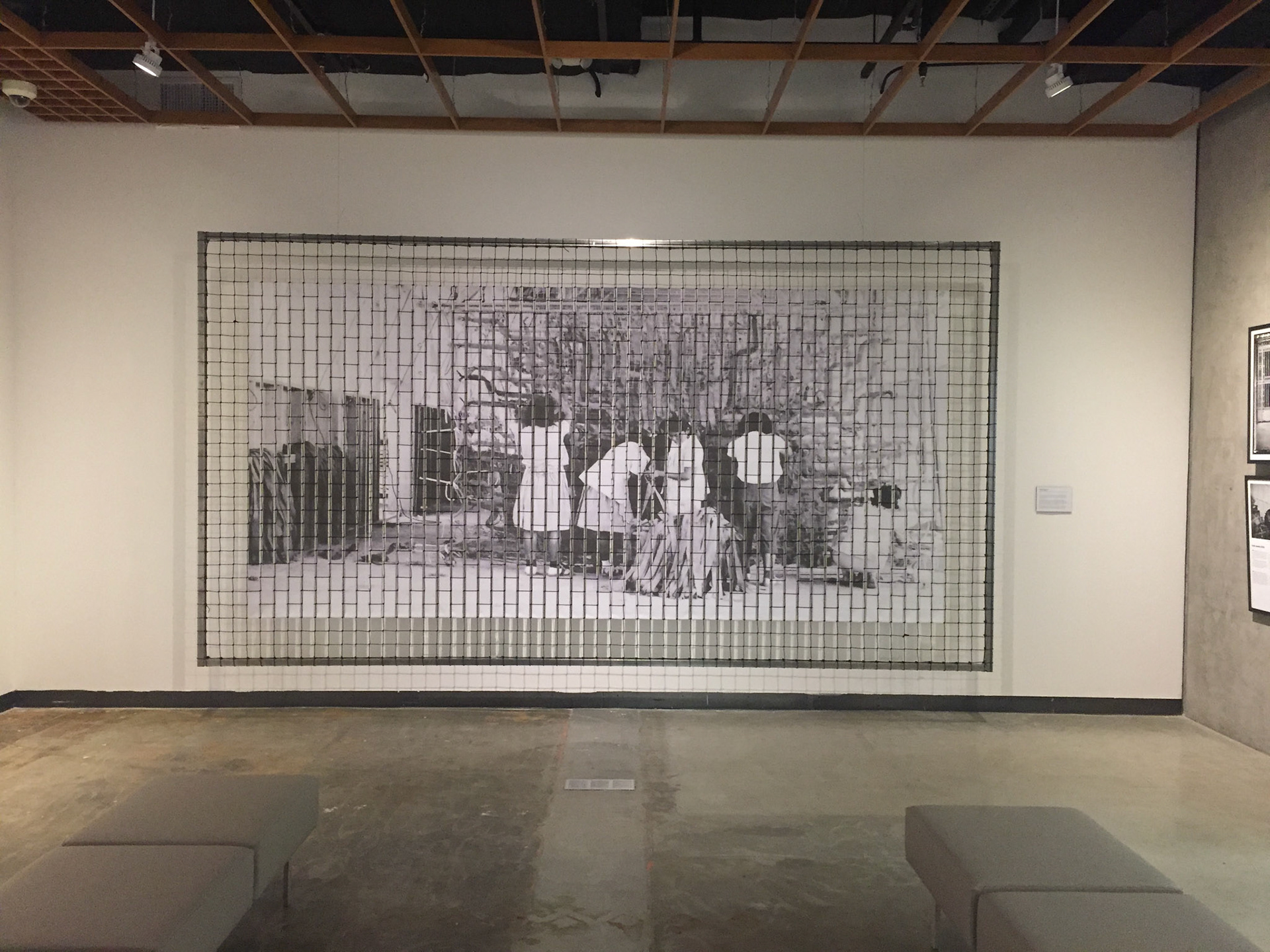
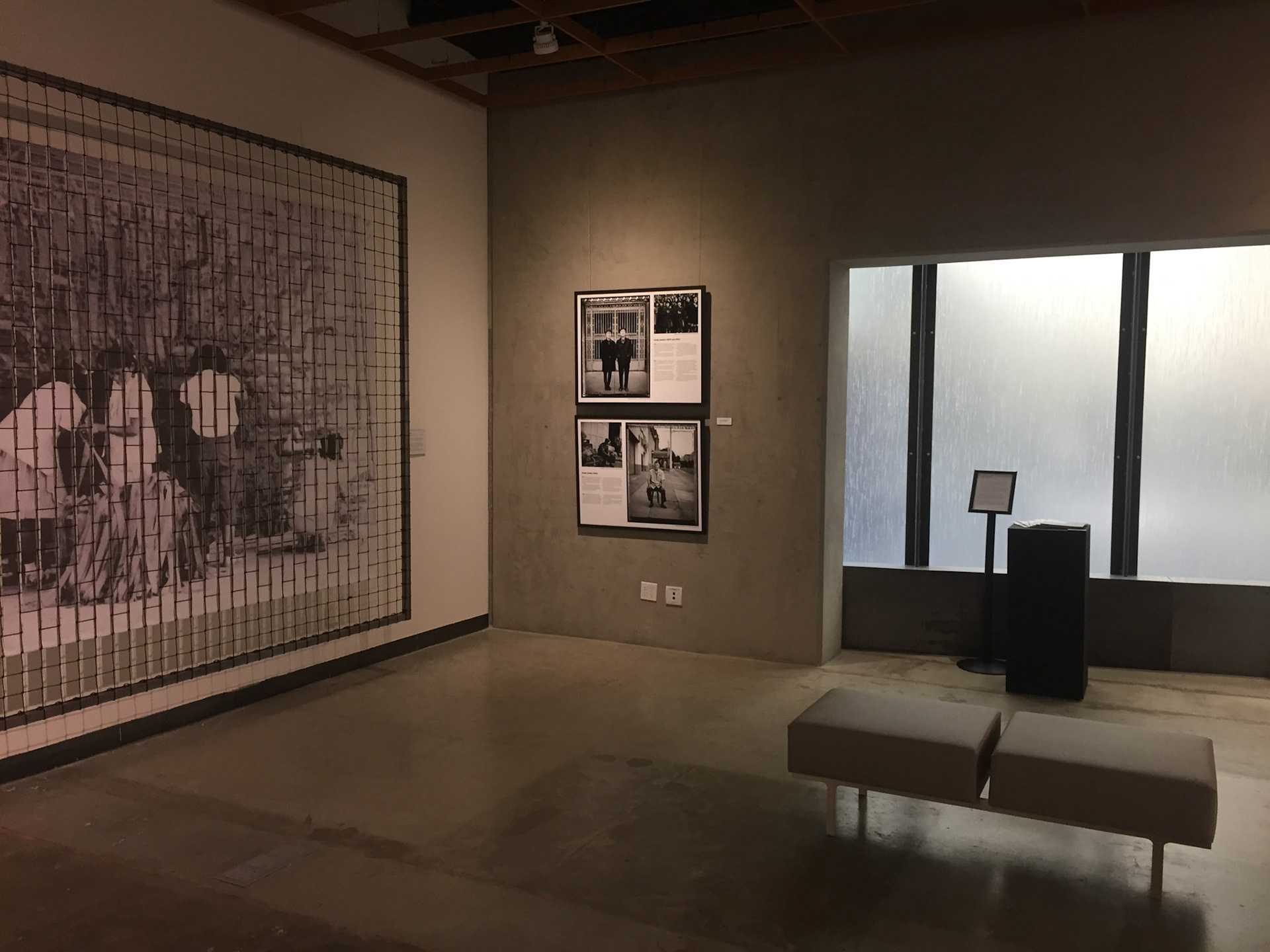
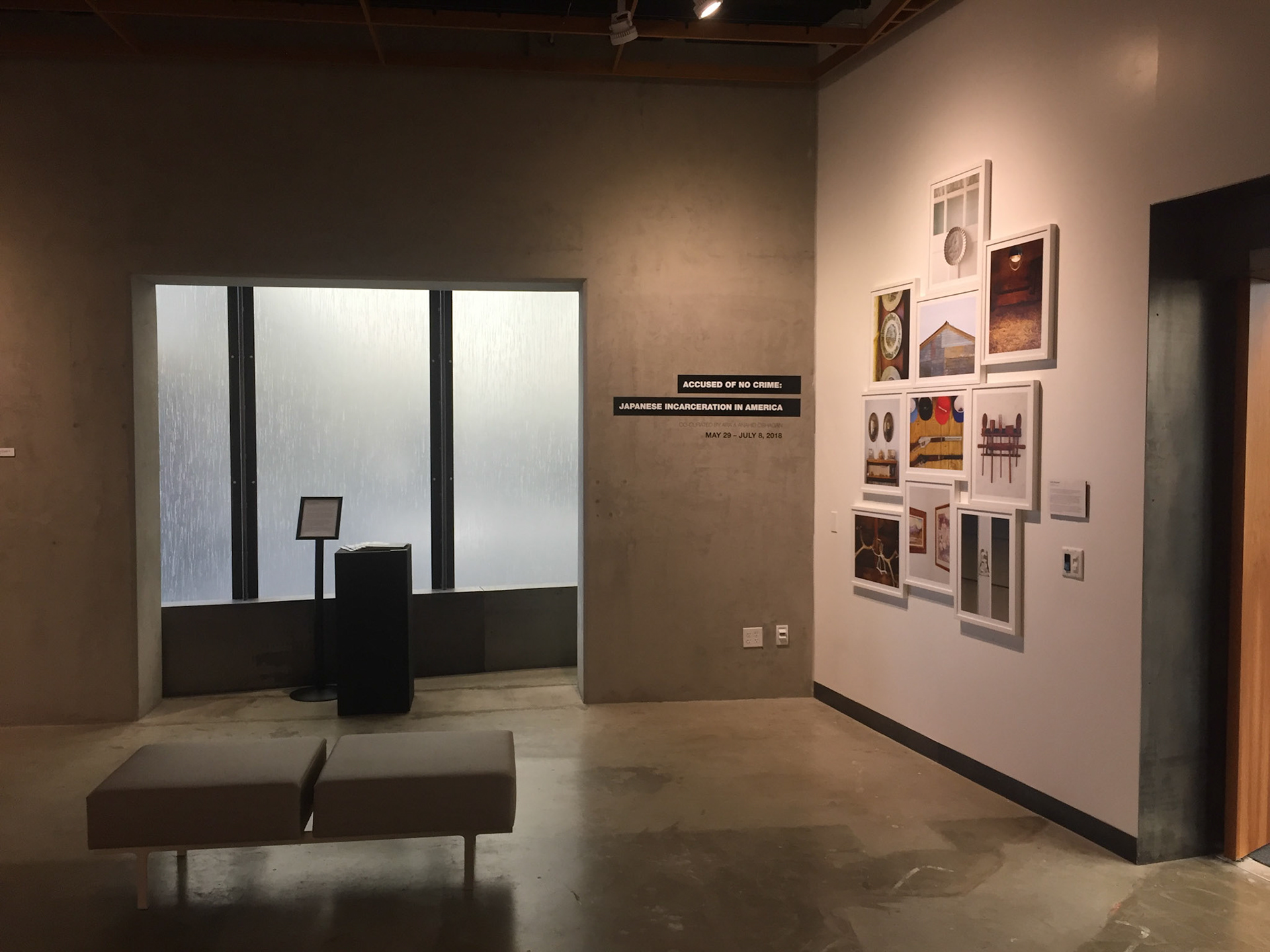
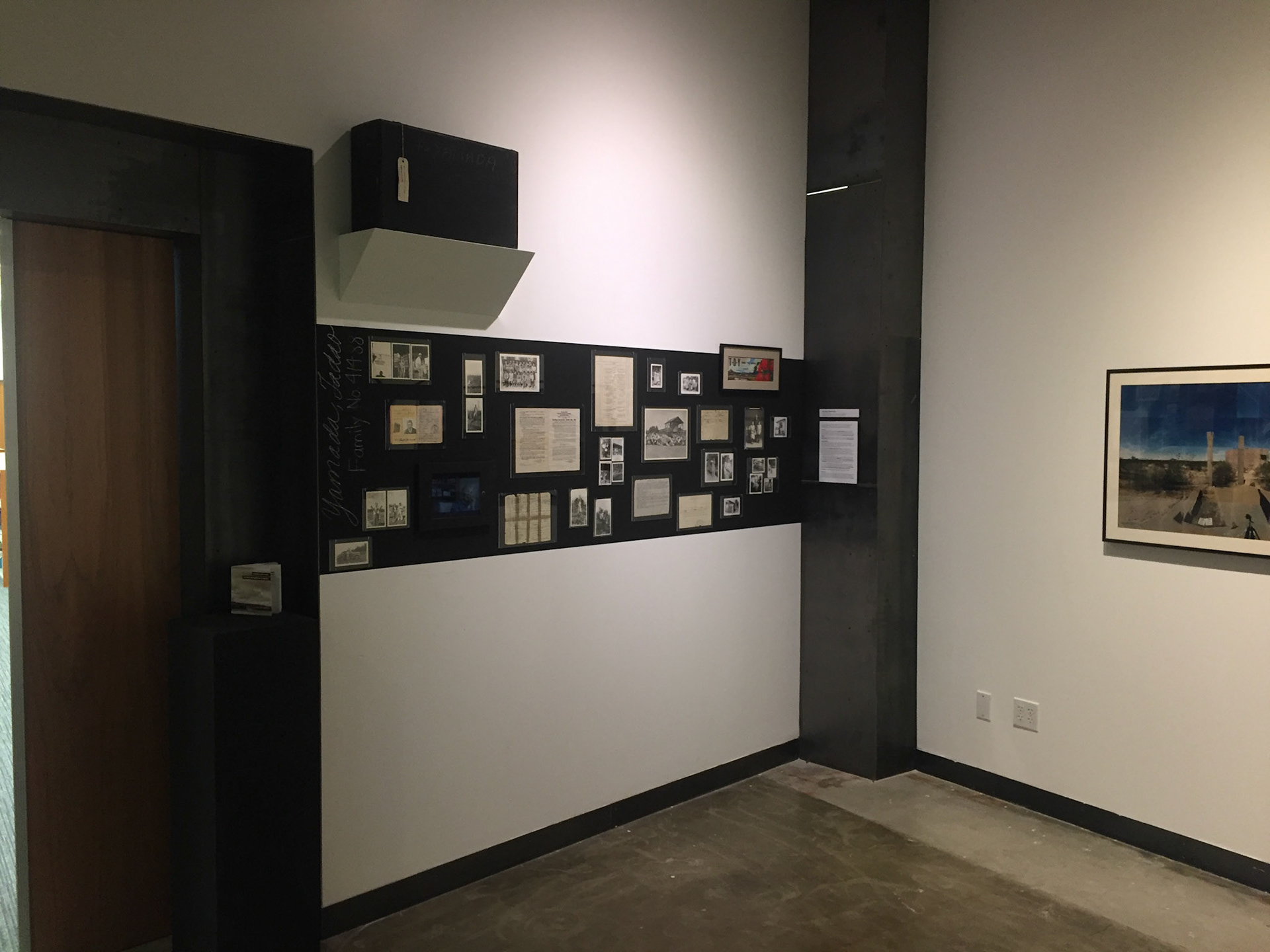
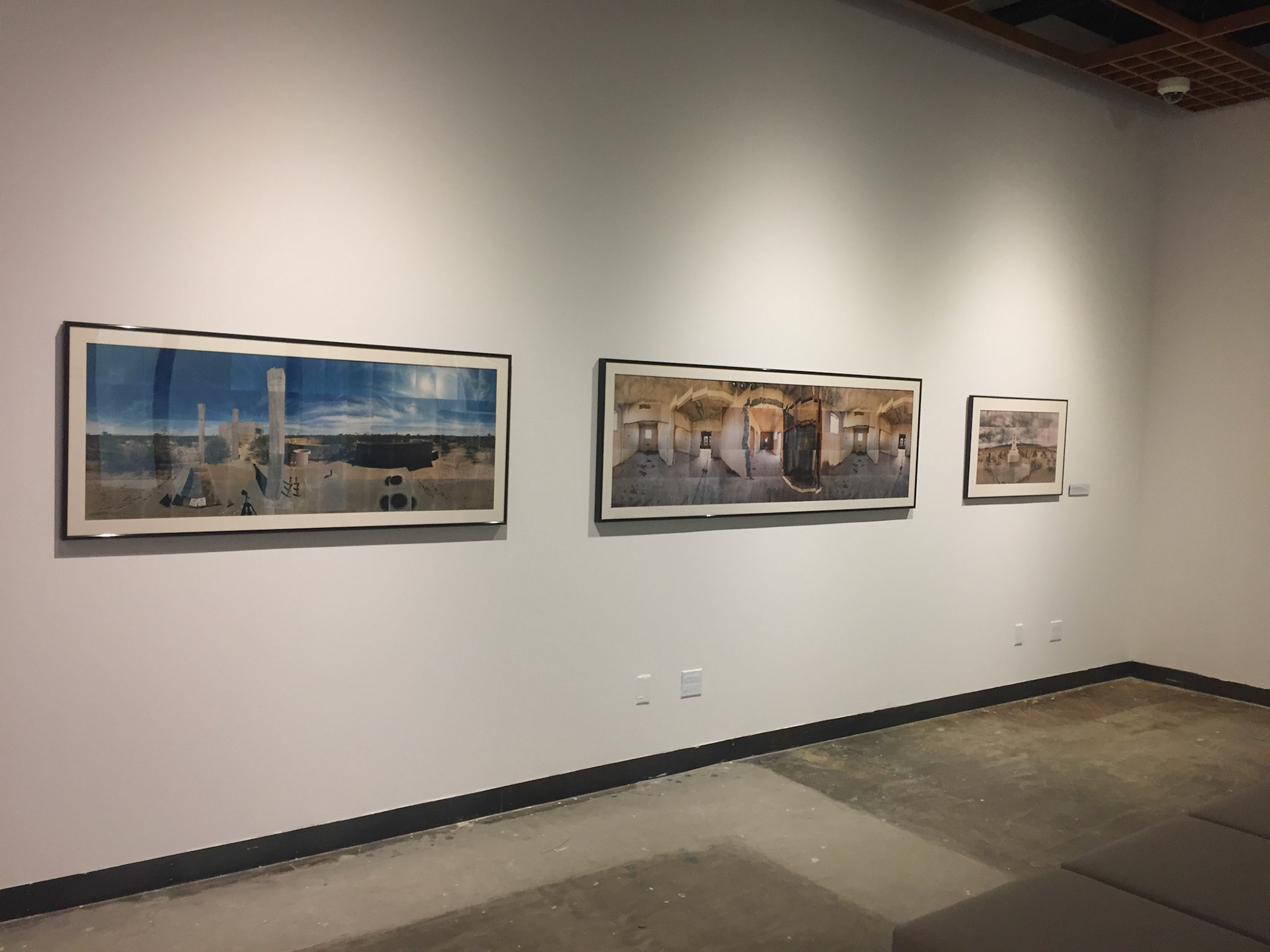
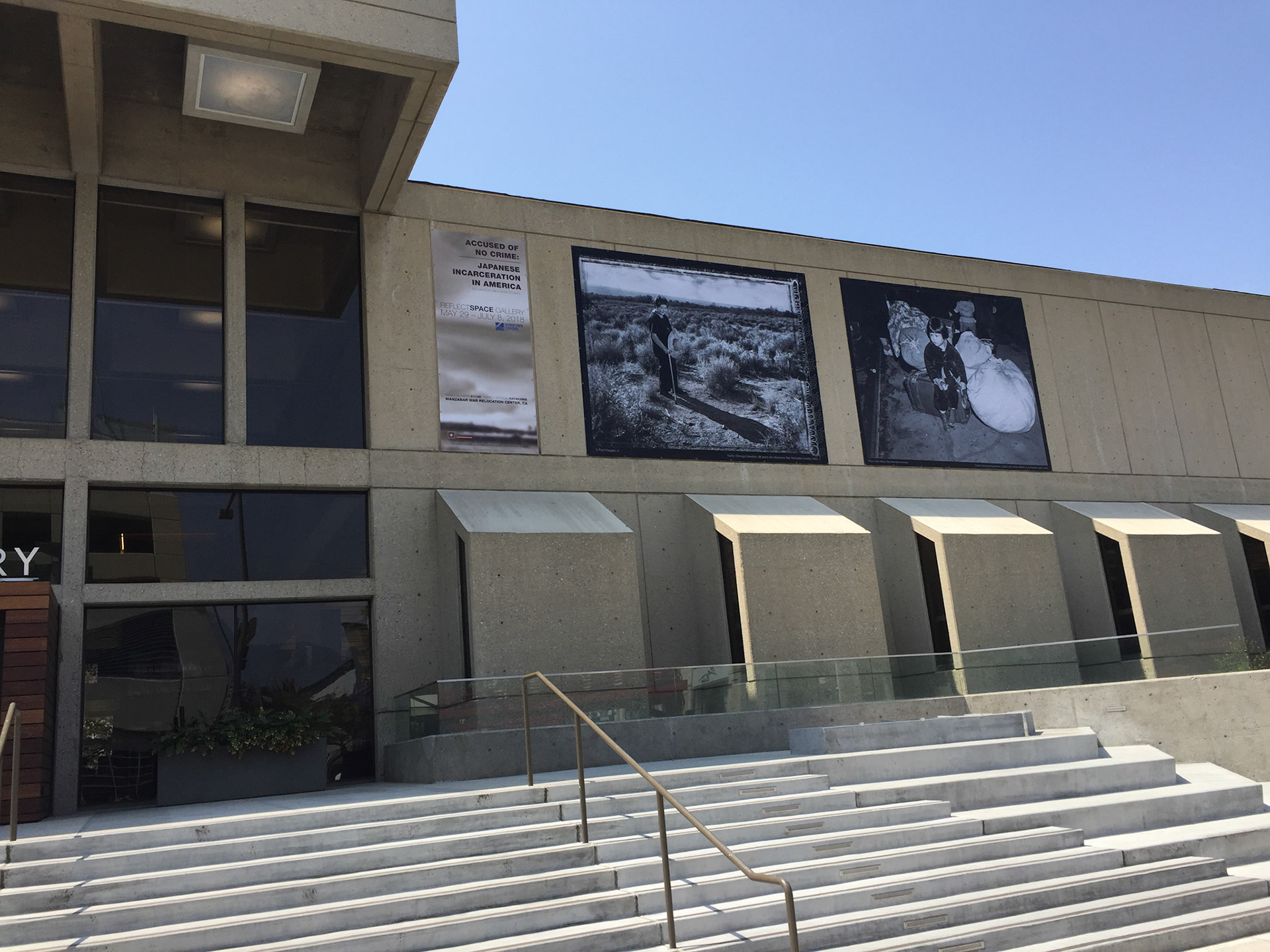
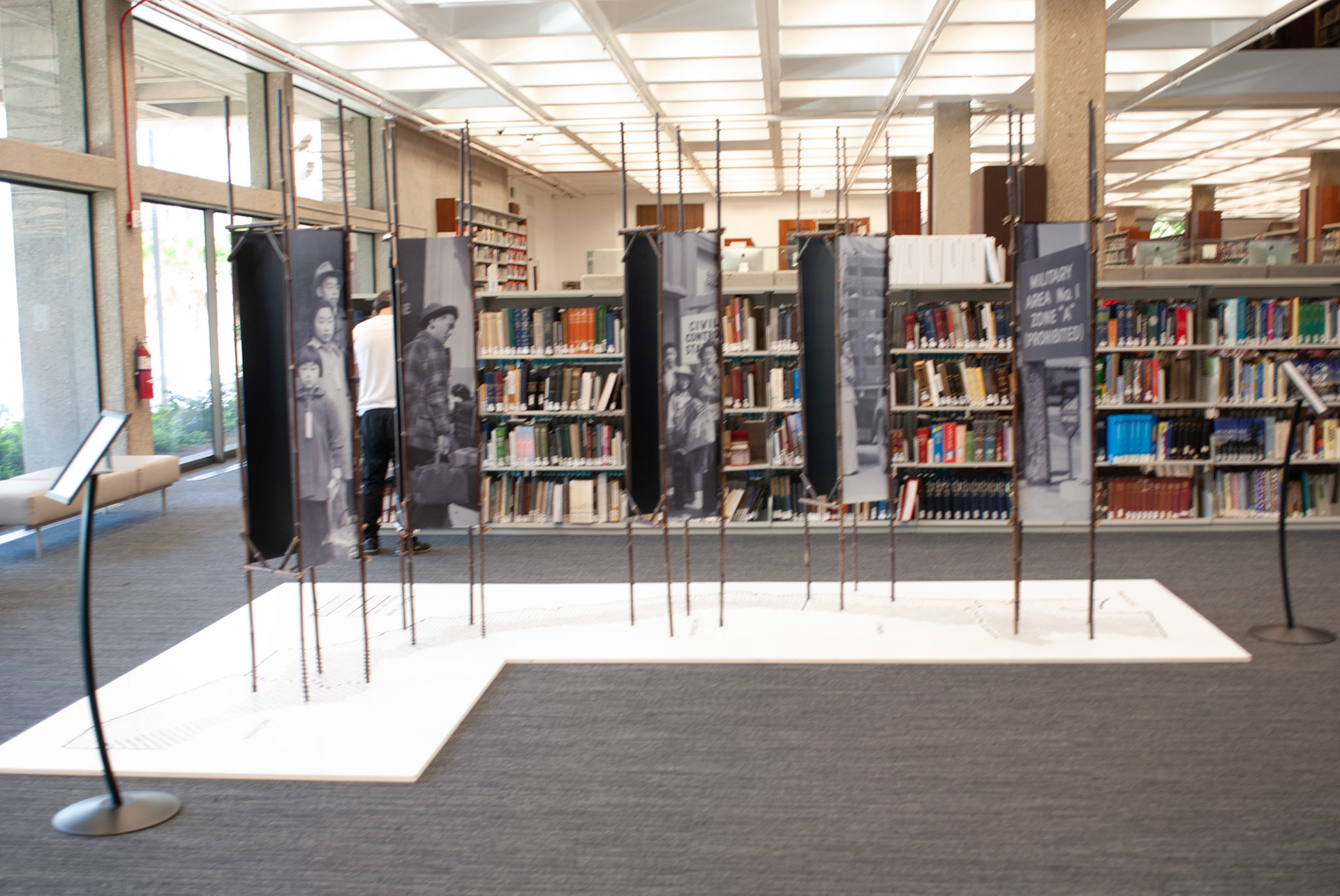
ReflectSpace Gallery at Downtown Central exhibit Accused of No Crime: Japanese Incarceration in America examines a massive civil rights violation committed in our own backyard by our own government: the “crimeless” imprisonment by the US government of 120,000 men, women, and children of Japanese ancestry during WWII. The artists in Accused of No Crime reflect on the historical context of the incarceration and consider its impact today. The exhibit weaves a deeply personal narrative of this dark history through art, archive, installation, and documentary film to highlight the stories of interned families and showcase artists who are descendants.
Artists in exhibition include Masumi Hayashi, Mona Higuchi, Paul Kitagaki, Kevin Miyazaki. The exhibit also includes archival images by Ansel Adams, Dorothea Lange and Clem Albers in addition to a ReflectSpace-commissioned documentary by filmmaker Avo Kambourian about the Glendale-based Yamada family who were incarcerated at Poston, Arizona.
Accused of No Crime: Japanese Incarceration in America in ReflectSpace Gallery and the PassageWay opens on May 29 and runs until July 8, 2018. The opening reception is on Friday June 1, from 6:30 – 8:30 pm. Accused of No Crime is co-curated by Ara and Anahid Oshagan. Accused of No Crime is made possible by a grant from the California State Library’s Civil Liberties Public Education Program.
During World War II, under the guise of national security, the US government incarcerated citizens and legal residents of Japanese ancestry without due process or other constitutional protections to which they were entitled. Executive Order 9066, signed by President Franklin D. Roosevelt on February 19, 1942, set in motion the forced and arbitrary removal and imprisonment of all people of Japanese citizens and non-citizens alike living on or near the West Coast.
Masumi Hayashi, a Manzanar camp survivor, creates “panoramic photo collages” of internment camps. Involving hundreds of meticulously captured photographs and assembled to create a near 360 degree view of a camp site, her work presents a landscape that is at once familiar but subtly distorted. The question she poses: what do you see when you look upon a place of atrocity decades later.
Mona Higuchi reflects on her own history with two installations at Downtown Central. “The Camouflage Makers” addresses violations of the Geneva Convention by the US government and installation titled “Lines of Exclusion” considers the thin line of demarcation between incarceration and freedom. In concept, construction and presentation, Higuchi’s works look at the issue head on, finding and telling stories and weaving her own conceptual narrative into their folds.
Paul Kitagaki participates with images from his travelling exhbition: “Gambatte! Legacy of an Enduring Spirit.” Sourcing historic images shot by War Relocation Authority staff photographers Dorothea Lange, Tom Parker and others, Kitagaki finds the survivors or their descendants and juxtaposes them with contemporary images of the same individuals taken by himself. He also tells their stories: creating a personal narrative of past and present
An in-depth and personal documentary of the longtime Glendale resident Glen Yamada and his family commissioned by ReflectSpace is also on view. The Yamada family were incarcerated at Poston, Arizona. Directed by filmmaker Avo Kambourian, the documentary explores the Yamada family story through narratives and archives and a visit to the ruins of the Poston camp as it stands today.
Kevin Miyazake queries his past through two projects. After the release of the Japanese, the remains of the camps were integrated into local communities. Miyazake finds these repurposed structures and their fragments and photographs them. He is interested in how “buildings constructed as a result of wartime hysteria and racist attitudes became structures which helped to enable an American dream by another set of individuals.” His second project is a “fictional and factual” artist book designed in the shape of Sears Home catalog that welcomes internees to their homes at their incarceration camps.
Accused of No Crime’s historical reflection includes iconic and censured images by Ansel Adams, Dorothea Lange and Clem Albers of Japanese incarceration. These photographers were hired by the US government to document the internment but many of their images were “impounded” at the time for not presenting the “official” government version of events.
